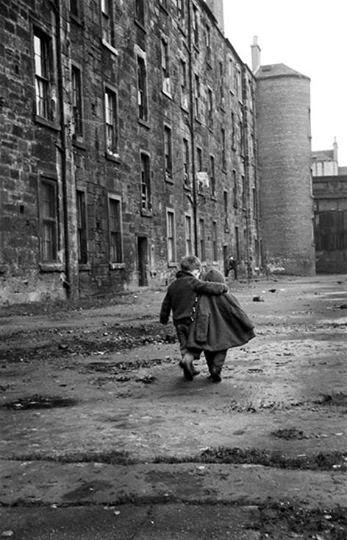Let them be helpless like children, because weakness is a great thing, and strength is nothing. ~ Stalker, Andrei Tarkovsky (1979)
30 aprilie 2014
Vincent van Gogh (30 March 1853 - 29 July 1890)
“I always think that the best way to know God is to love many things.”
 |
| Vincent van Gogh |
 |
| Vincent van Gogh |
Paintings Gallery: Vincent van Gogh | Facebook
29 aprilie 2014
Ivan Aivazovsky (29 July 1817 – 5 May 1900)
"Om liber, tu vei iubi întotdeauna Marea !" - Charles Baudelaire
 |
| Ivan Aivazovsky |
 |
| Ivan Aivazovsky |
Paintings Gallery: Ivan Aivazovsky | Facebook
27 aprilie 2014
26 aprilie 2014
22 aprilie 2014
21 aprilie 2014
Photo of the Day: Hungary. 1915.
In 1915, André Kertész
famously photographed three children perched on a street curb in Esztergom in
Hungary. The picture is an image of innocent escapism.
― Source: The Telegraph
20 aprilie 2014
The Moody Blues - Nights In White Satin
"Fericirea dinlăuntrul meu e mai puternică decât mine, decât oasele mele,
pe care mi le scâşneşti într-o îmbrăţişare, mereu dureroasă, minunată mereu."
17 aprilie 2014
16 aprilie 2014
Gone but never forgotten...
Wonderful photograph taken by William Eugene
Smith. Charlie Chaplin and his 3-year-old daughter Josephine, inside his home
in Beverly Hills (1952)
15 aprilie 2014
13 aprilie 2014
12 aprilie 2014
In the midst of winter, I found there was, within me, an invincible summer.
"My dear,
In the midst of hate, I found there was, within me, an invincible love.
In the midst of hate, I found there was, within me, an invincible love.
In the midst of tears, I found there was, within
me, an invincible smile.
In the midst of chaos, I found there was, within me, an invincible calm.
I realized, through it all, that…
In the midst of winter, I found there was, within me, an invincible summer.
And that makes me happy. For it says that no matter how hard the world pushes against me, within me, there’s something stronger – something better, pushing right back."
Albert Camus - The Stranger
In the midst of chaos, I found there was, within me, an invincible calm.
I realized, through it all, that…
In the midst of winter, I found there was, within me, an invincible summer.
And that makes me happy. For it says that no matter how hard the world pushes against me, within me, there’s something stronger – something better, pushing right back."
Albert Camus - The Stranger
10 aprilie 2014
Vincent van Gogh - Starry Night Over the Rhone (1888)
"De-aceea zilele
îmi sunt pustii ca nişte stepe,
Dar nopţile-s de-un farmec sfânt ce nu-l mai pot pricepe..."
Dar nopţile-s de-un farmec sfânt ce nu-l mai pot pricepe..."
 |
| Vincent van Gogh - Starry Night Over the Rhone (1888) |
Paintings Gallery: Vincent van Gogh | Facebook
8 aprilie 2014
6 aprilie 2014
5 aprilie 2014
Movie of the Day: Ivan's Childhood (1962)
Ivan's Childhood (1962) ~ Directed by Andrei Tarkovsky
- Drama | War - 7 January 1963 (Sweden)
Director: Andrei Tarkovsky
Writers: Vladimir Bogomolov (story & screenplay)
Stars: Nikolay Burlyaev, Valentin Zubkov, Evgeniy Zharikov
 |
| Ivan's Childhood |
Andrei Tarkovsky Biography
Born: in Zavrazhe, Russia
Died: (age 54) in Paris, France
"The most famous Soviet film-maker since Sergei M. Eisenstein, Andrei Tarkovsky (the son of noted poet Arseniy Tarkovsky) studied music and Arabic in Moscow before enrolling in the Soviet film school V.G.I.K.
He shot to international attention with his first feature, Ivanovo detstvo (1962), which won the top prize at the Venice Film Festival. This resulted in high expectations for his second feature Andrei Rublyov (1969), which was banned by the Soviet authorities until 1971. It was shown at the 1969 Cannes Film Festival at four o'clock in the morning on the last day, in order to prevent it from winning a prize - but it won one nonetheless, and was eventually distributed abroad partly to enable the authorities to save face.
Solyaris (1972), had an easier ride, being acclaimed by many in Europe and North America as the Soviet answer to Kubrick's (2001) (though Tarkovsky himself was never too fond of it), but he ran into official trouble again with Zerkalo (1975), a dense, personal web of autobiographical memories with a radically innovative plot structure.
Stalker (1979) had to be completely reshot on a dramatically reduced budget after an accident in the laboratory destroyed the first version, and after Nostalghia (1983), shot in Italy (with official approval), Tarkovsky defected to Europe.
His last film, Offret (1986) was shot in Sweden with many of Ingmar Bergman's regular collaborators, and won an almost unprecedented four prizes at the Cannes Film Festival. He died of lung cancer at the end of the year." (IMDB)
2 aprilie 2014
1 aprilie 2014
Abonați-vă la:
Comentarii (Atom)






















